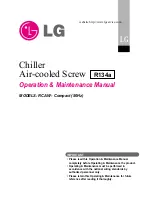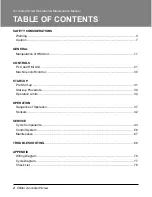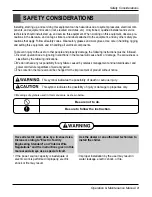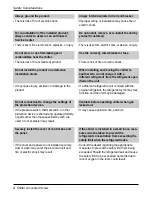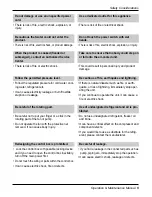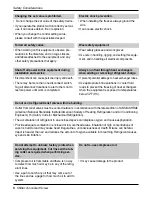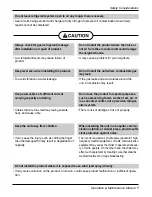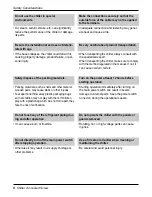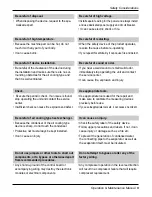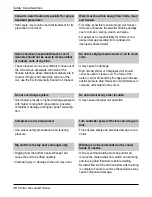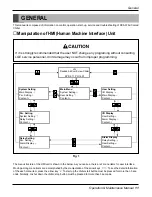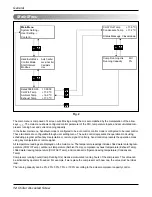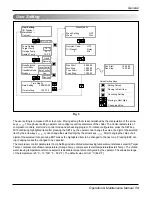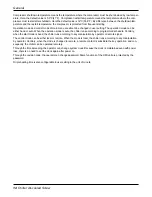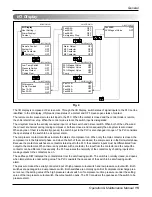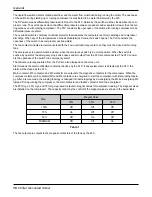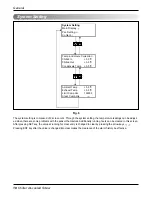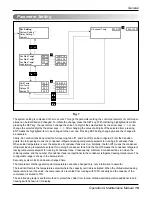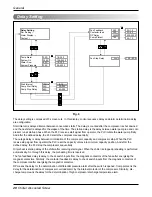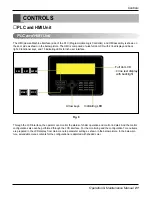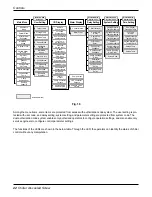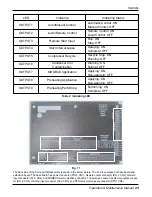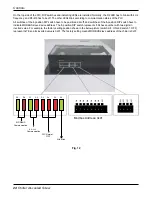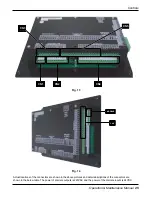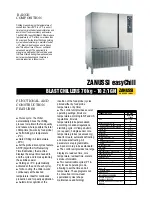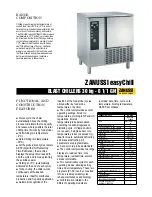
Safety Considerations
10 Chiller Air-cooled Screw
Consult a water treatment specialist for proper
treatment procedures.
• Hard scale may require chemical treatment for its
prevention or removal
Water must be within design flow limits, clean
and treated.
• This make it possible to ensure proper machine per-
formance and reduce the potential of tubing damage
due to corrosion, scaling, erosion, and algae.
• LG assumes no responsibility for chiller or con-
denser damage resulting from untreated or
improperly treated water.
Rig unit from the top heat exchanger only.
• Rigging from the bottom heat exchanger will
cause the unit to be lifted unsafely.
• Personal injury or damage to the unit may occur
Welding is not recommended in the cooler
heads or nozzles.
• In the event that welding must be performed,
remove the chilled water flow switch and entering
and leaving fluid thermistors before welding.
• Reinstall flow switch and thermistors after welding
is complete. Failure to remove these devices may
cause component damage.
Harsh chemical, household bleach or acid
cleaners should not be used to clean outdoor
or indoors coils of any kind.
• These cleaners can be very difficult to rinse out of
the coil and can accelerate corrosion at the
fin/tube interface where dissimilar materials are in
contact. If there is dirt below the surface of the
coil, use the Environmentally Sound Coil Cleaner.
Do not use high-pressure water or air to clean
coils.
• It may cause fin damage
• High Velocity Water or Compressed Air should
never be used to clean a coil. The force of the
water or air jet will bend the fin edges and increase
airside pressure drop. Reduced unit performance or
nuisance unit shutdown may occur.
Do not overcharge system.
• Overcharging results in higher discharge pressure
with higher cooling fluid consumption, possible
compressor damage and higher power consump-
tion.
Do not add oil at any other location.
• It may cause improper unit operation
Compressor oil is pressurized.
• Use proper safety precautions when relieving
pressure.
Turn controller power off before servicing con-
trols.
• This ensures safety and prevents damage to con-
troller.

